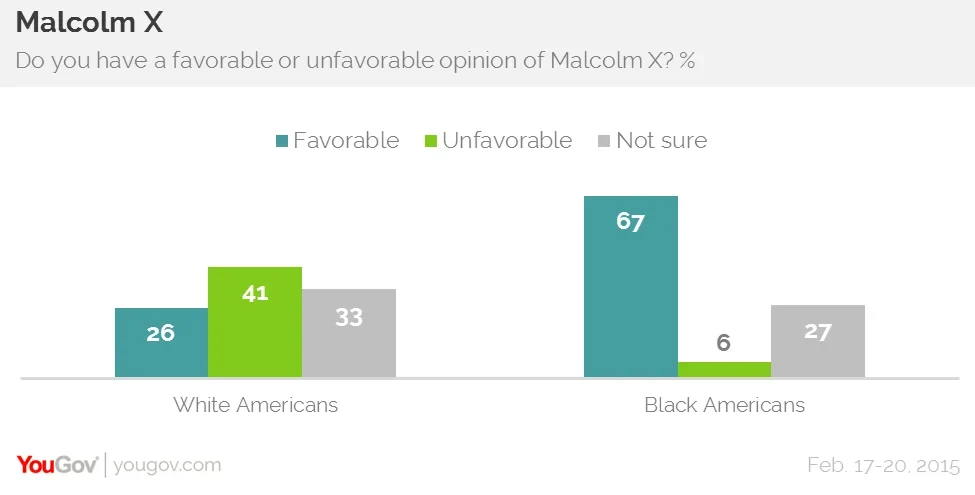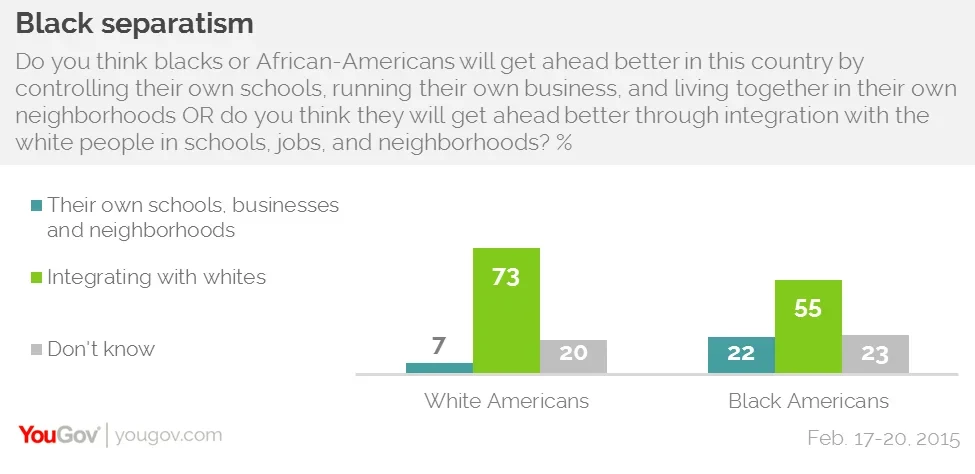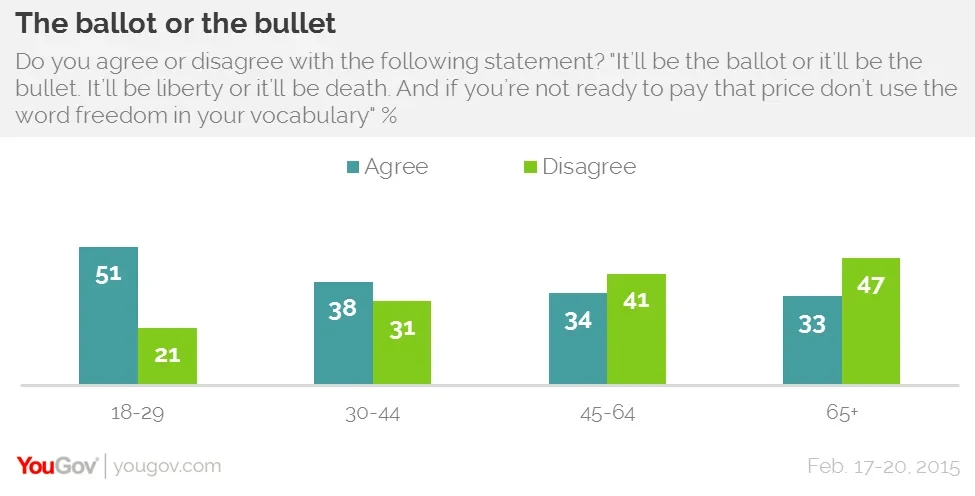A large majority of black Americans have favorable opinions of Malcolm X fifty years after his murder, though most reject black separatism
Fifty years ago today the black nationalist leader Malcolm X was shot and killed at the Audubon Ballroom in upper Manhattan. He had been shot 21 times by assassins connected to the Nation of Islam, a Muslim sect that Malcolm X had left the year before due to disagreements over Islam and whether or not it was possible to change the racist nature of white society in America. Despite his early end Malcolm X became an icon of black Americans and his teachings formed the cornerstone of the black power movement which overtook the civil rights movement in the late 1960s.
YouGov's latest research shows that attitudes towards Malcolm X differ significantly between white and black Americans. Overall 32% of Americans have a positive opinion of Malcolm X, while 34% have a negative opinion. Whites tend to have an unfavorable (41%) rather than favorable (26%) opinion of Malcolm X. Among black Americans, however, the vast majority (67% to 6%) have a favorable rather than unfavorable opinion of him.

One the key tenets of black nationalism espoused by Malcolm X and others is that black communities in America could only truly improve their situation by building their own self-sufficient communities under their control. Most Americans (69%), including 55% of blacks, think that black Americans will be better off integrating with white people than building a separate society where they control their own schools, businesses and neighborhoods. Nevertheless, 22% of black Americans say that they'd be better off building their own society than integrating with whites.

One of Malcolm X's most famous speeches came in the month after he left the Nation of Islam. In 'The Ballot or the Bullet' Malcolm X advised black Americans to use their votes carefully and wisely and issued a warning to the government that if blacks were not given full equality it would become necessary for them to take up arms against the government and white supremacy.
Younger Americans are much more receptive to the idea behind the speech, encapsulated by a quote from the speech which talked about how freedom was conditional on being willing to make the only choice one between liberty and death. 51% of under-30s agree with the quote while only 21% disagree with it. Disagreement increases among each age group, with over-65s (47%) being particularly hostile to the statement. Republicans (42%) are also more likely than Democrats (35%) to agree with the statement.









